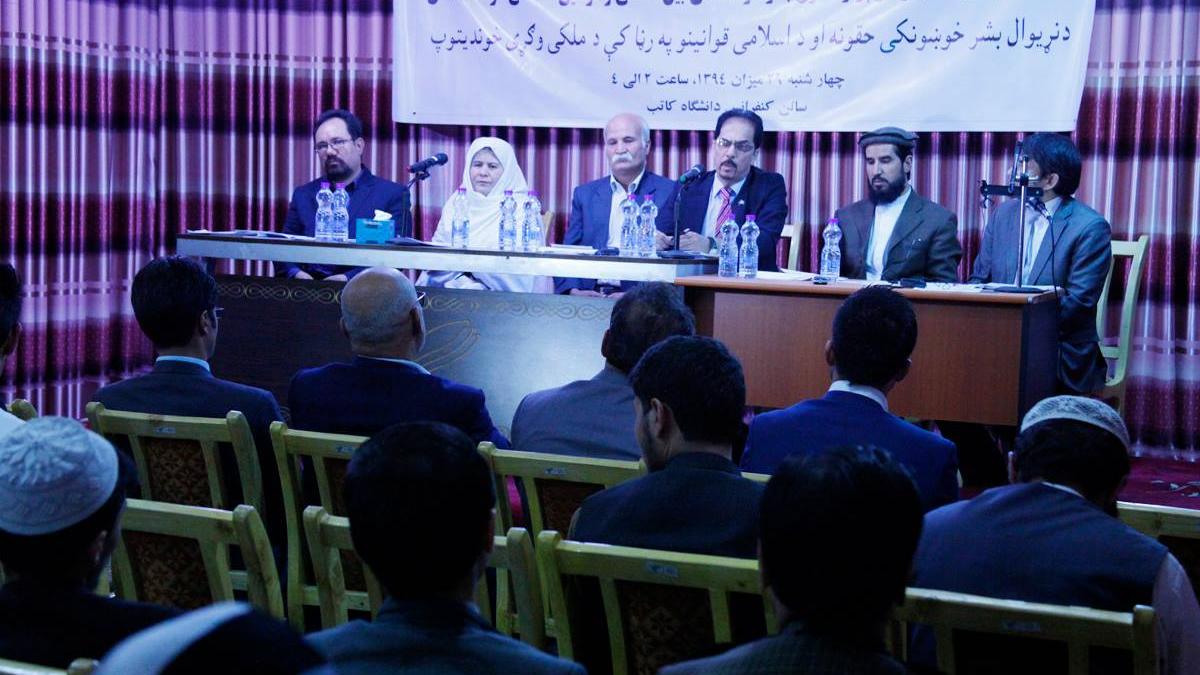KABUL - As part of UNAMA’s ongoing advocacy for the protection of civilians in armed conflict, a panel of experts highlighted international humanitarian law, the responsibilities of parties to conflict and Islamic perspectives on protecting civilians.
Panelists at the event, which took place last week at Kabul’s Kateb University, included an Afghan Member of Parliament, university professors, human rights activists and a UNAMA Human Rights official.
The diverse audience, of about 60 people, included students from the Law and Sharia Faculties of Kabul and Kateb universities, civil society activists and journalists. Also attending were members of the Protection of Civilian Group – and Afghan civil society network supported by UNAMA to advocate for protection of civilians in armed conflict.
Abdul Ahrar Ramizpoor, a UNAMA human rights official, briefed about the UN’s regular reports on the protection of civilians in armed conflict, along with related advocacy efforts.
UNAMA’s Midyear Report on Protection of Civilians in Armed Conflict, issued in August, found that the Afghan conflict continued to exact a heavy toll on Afghan civilians in the first six month of 2015, with civilian casualties projected to equal or exceed the record high numbers documented in 2014.
The vast majority – or 90 per cent – of civilian casualties resulted from ground engagements, improvised explosive devices, complex and suicide attacks and targeted killings, according to the report, prepared in coordination with the Office of the United Nations High Commissioner for Human Rights.
The report outlines key steps to be taken by parties to the conflict to mitigate casualties and protect civilians from harm.
Briefing the audience on the role of Parliament legislating for the protection of civilians, Afghan Member of Parliament Shah Gul Rizayee said that Parliament has yet to approve a law on the protection of civilians in armed conflict. She went on to say that a range of groups, including civil society, the Afghan Independent Human Rights Commission (AIHRC) and international organizations, should play a role in supporting the Afghan Parliament to draft appropriate legislation.
The panel discussion was the third in a series of events organized by UNAMA as part of the latest advocacy campaign on the protection of civilians.
The two other events were day-long interactive sessions with male and female students of the Law and Sharia Faculties of Kabul University in collaboration with the University and the Afghan Independent Human Rights Commission.






